Bronzini considers life after professional cycling
Former double world champion could step into the culinary and hospitality industry
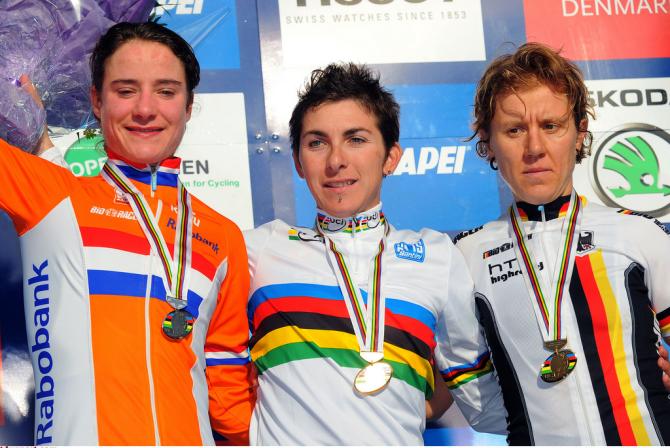
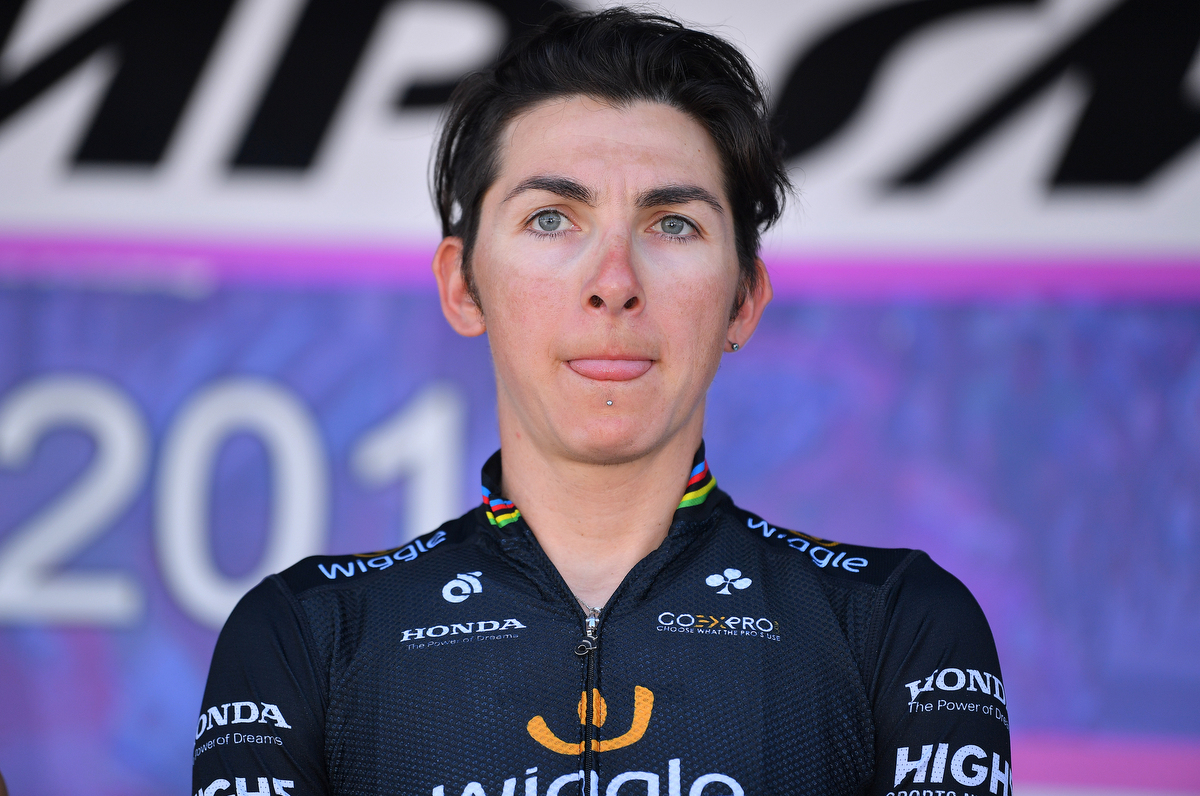
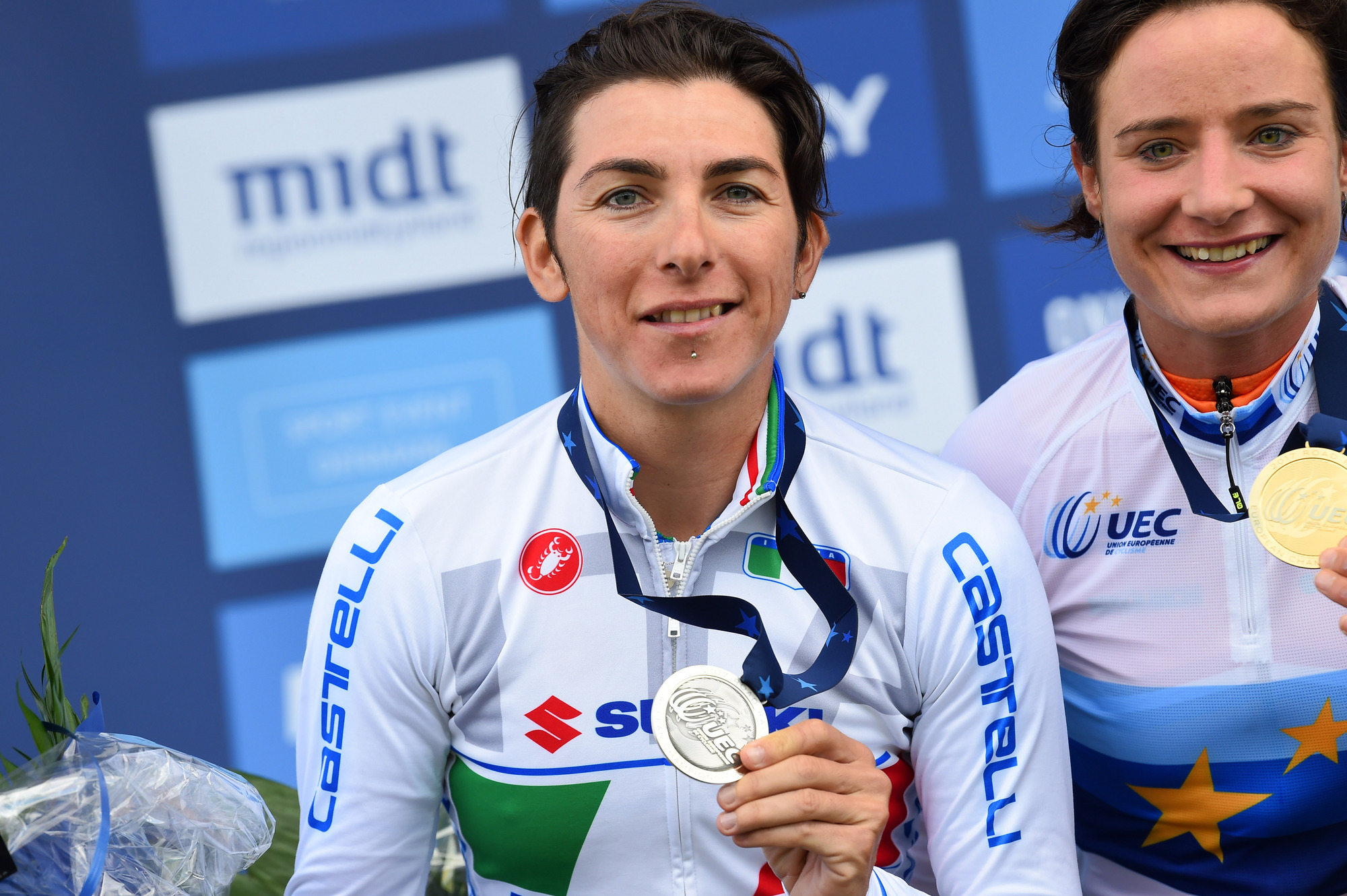
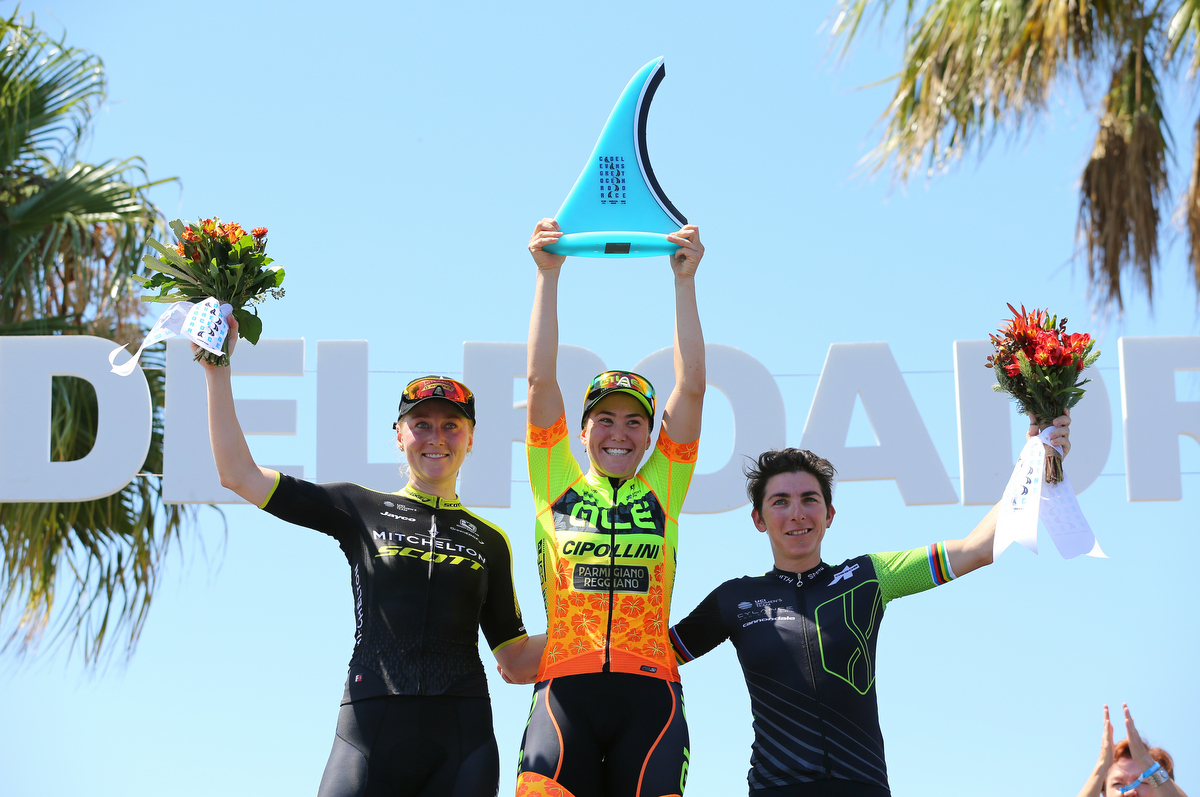
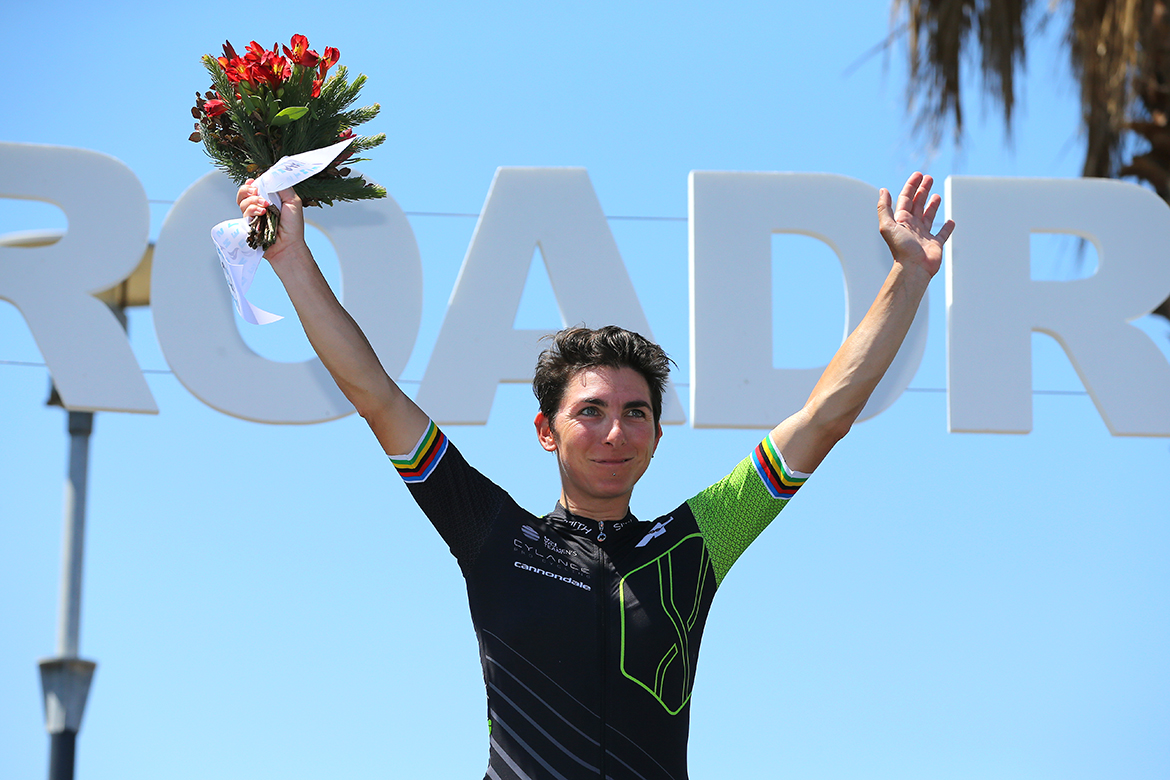
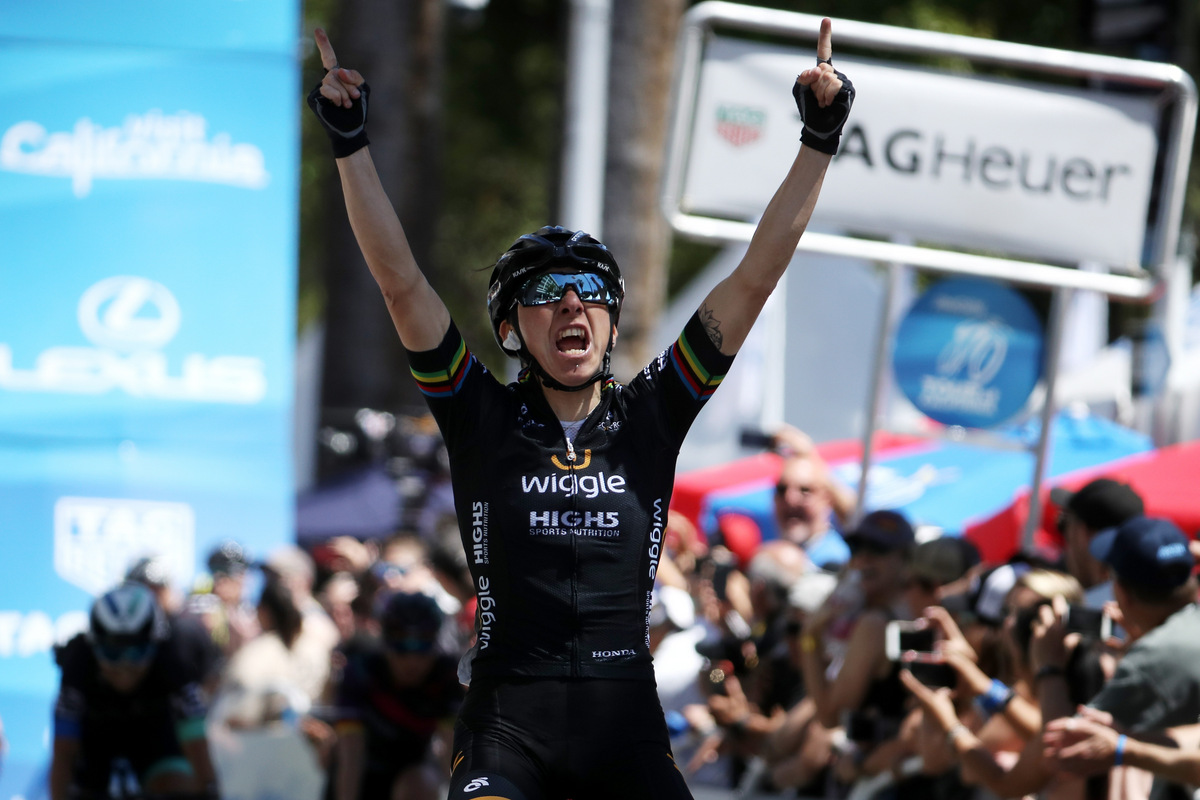
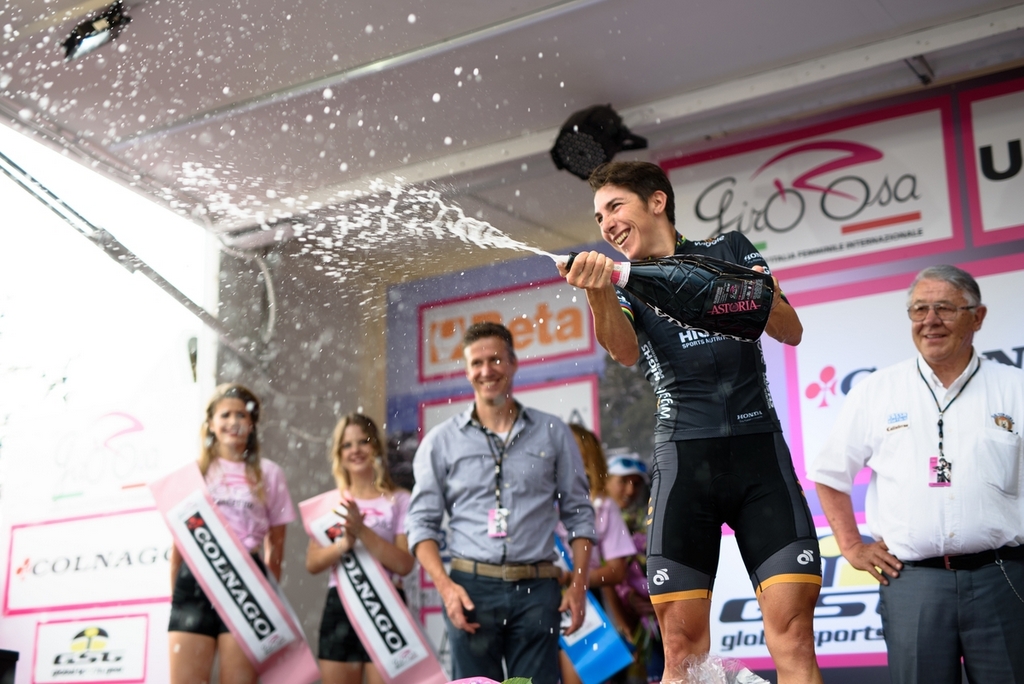
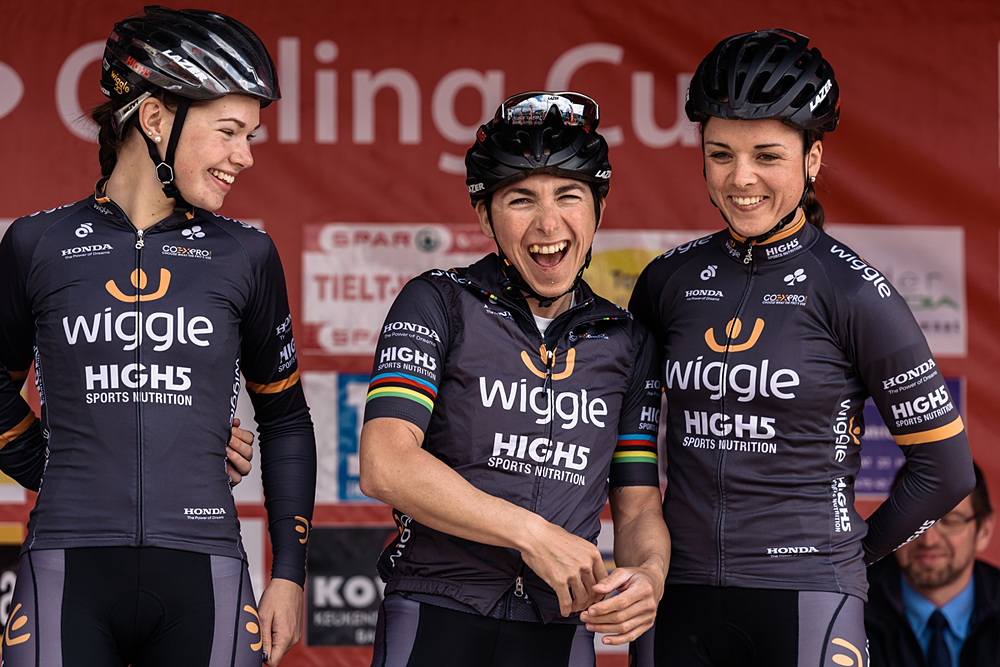
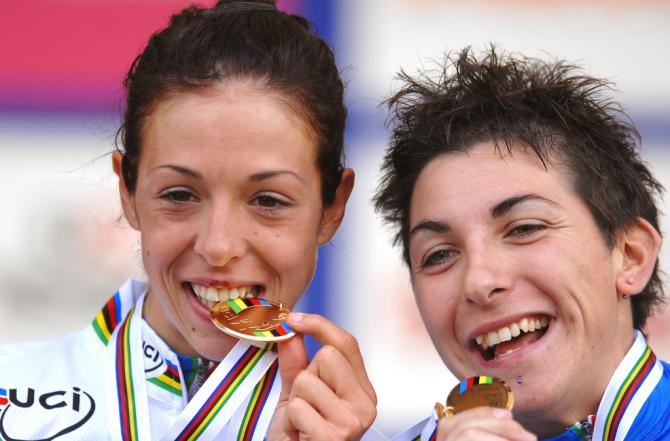
Nobody – not even herself – knows 100 per cent whether or not Giorgia Bronzini will choose to make 2018 the final season of her lengthy career as a professional cyclist. Whatever the decision she comes to at the end of the year, it is certain that when she does finally make the call to hang up her racing wheels, she will leave behind a palmarès that most riders – male or female – would give their right arm to achieve.
Bronzini's ability to win has waned in recent years, and she claimed just one victory last season. With retirement on the horizon, she chose to move to the American team Cylance for 2018, to give her the chance to close her career out with a bang.
After five seasons with Rochelle Gilmore's Wiggle-High5 squad, the switch was a surprise, but Bronzini says that it was an amicable split, explaining that she had, almost by accident, become more of a staff member than a rider and she wanted to focus on herself for the last months or years of her career.
"It wasn't that Wiggle asked me to be more than a rider. For me, it was natural," Bronzini tells Cyclingnews. "I had no obligation from Rochelle that I had to do this or that, not at all. It was my initiative to be a helper. I was the one putting myself in that position. When I realised that it was too much, that took away a lot of energy from my performance, and when it came to being a rider, I thought that I still had more to give to myself in trying to win."
Though Bronzini is not yet sure what she will be doing in 2019, she has begun to make plans for what she will do in the next part of her life. She has already expressed a desire to work as a directeur sportif immediately after her retirement and will take the UCI's DS course at the end of the season. That is just a short-term ambition for now, and she may well leave cycling for good after a year or so.
"I have a lot of passions and hobbies. I could work in other areas," says Bronzini. "I'm not stuck on being involved in cycling. I would like to study at cooking school, and I have a passion for wine, and one of my goals would be to open something about gastronomy. I don’t know what – a restaurant or a bed-and-breakfast – but something around the food world.
"Everyone has a different passion and hobbies. It's good to have so that you can manage yourself with whatever happens in life."
Get The Leadout Newsletter
The latest race content, interviews, features, reviews and expert buying guides, direct to your inbox!
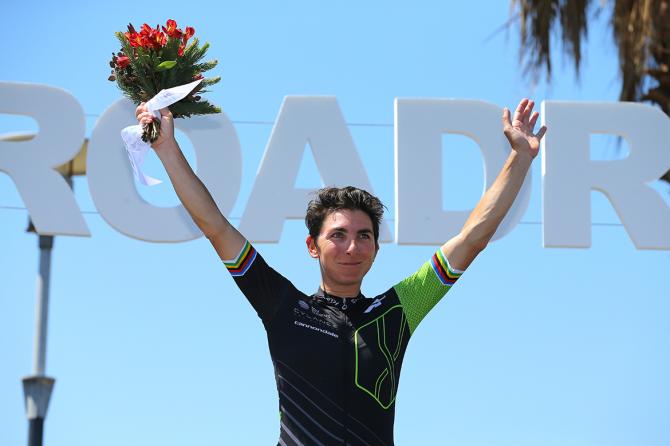
A director on the bike
It is a trope commonly used in cycling that it is often not the strongest rider who wins a race, but the smartest. This is a philosophy that Bronzini, a two-time world road race champion and veteran rider, signs up to. The 34-year-old Italian says that her analytical approach to racing has been one of the biggest factors in the success that she's enjoyed throughout her career.
Since turning professional in 2003, Bronzini has become one of the most prolific winners in the women's peloton. She has claimed more than 80 victories over the years, including three elite-level world titles, with two consecutive victories on the road in 2010 and 2011, and a Points Race win at the 2009 Track World Championships. Most of Bronzini's success came at a time when she was going up against Marianne Vos at the peak of her powers. On her day, few can beat Bronzini, but she says that she was not the fastest in the pack and it was her tactics that, more often than not, got her over the line first.
"Finding the right tactic was crucial for me, it was so important," Broznini says. "I studied a lot about how my opponent was. During the race, I would try to look at them and try to understand how they were that day.
"For me, it is more important to have a good head or a good tactic than the body. Of course, if you are stronger than the others for 80 per cent and you have a shit tactic then, of course, you’re going to win anyway. But 80 per cent is a lot. You could have a good plan, but then you might not be able to make it happen. Balance is the best way to race."
Bronzini would use this mental approach to any race that she entered, whether it was her going for the victory or one of her teammates. She could often be seen dropping back to the team car to discuss tactics with the team's directeurs sportifs or making suggestions over the radio, though she points out that she would ultimately go with the team decision, whether she agreed with it or not.
"I would try to explain my point of view, and he would explain his point of view, and we would try to find the best solution," she says. "But, I don't think I would be arrogant enough to say 'this is what I've decided'."
It is this approach to her racing that led her former Wiggle team manager Kurt Bogaerts to describe her as a DS on the bike.
"She got the maximum out of herself and the team around her. She is a good motivator and almost a sports director on the bike also," says Bogearts. "When Giorgia started, she was seen as just a sprinter, but then I think she has done much more than that. She is a real champion and probably one of the best of her generation."
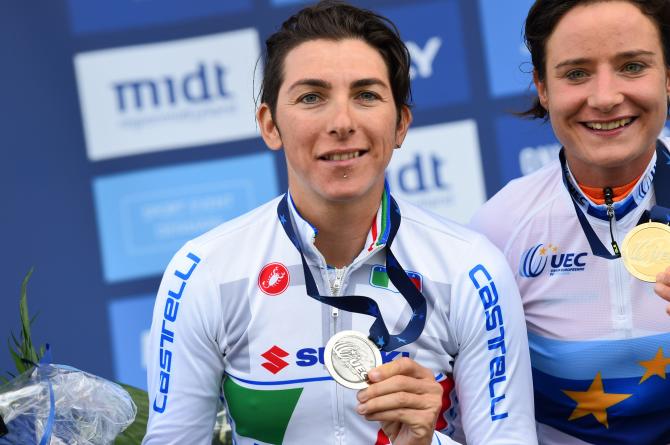
The beginnings
Cycling wasn't Bronzini's first choice of sport as a young child; it wasn't even on her radar at that point. At 11, Bronzini was into gymnastics, but she struggled with the rigidity of the sport and regularly found herself in trouble with the coaches. She was often sent off to work on her core or some other form of 'punishment' work so that she didn't distract the others.
"I was 11 years old, I wanted to play and to have fun, but me maybe more than the other girls," says Bronzini. "I was a little bit sad, so I said to my mum and dad that I wanted to change sport because I wasn't having fun anymore. My dad was quite keen on cycling. He didn't do it, but he followed the Giro d'Italia and the Tour de France, the main races, on TV. For this, he said if you want you could try cycling."
Her father took her along to a regular weekend event, and Bronzini was immediately hooked. She found that she could express herself much more on the bike than she had ever been able to in the gym, though that work had stood her in good stead when she did pick up the bike. With the strength she'd built up in gymnastics, the physicality of cycling did not feel such a big step, and she was soon taking victories upon victories.
"From there, I started to get interested, and I was finding information about how to develop and how I could go up," she says. "I had it in my mind that I wanted to be in the national jersey at the Worlds or something. Step by step, I dreamed bigger and bigger, and my main goal was to participate in the Olympic Games, and then, afterwards, I wanted to be world champion. Step by step, I was making reasonable goals that weren't just a dream."
When Cyclingnews asks if she's ever regretted giving up gymnastics for cycling, she gives a definite 'no' in response. Though, she says that had she not been able to win as frequently as she has then she may well have left the sport behind a long time ago. Bronzini is razor-focused, she wouldn't have had the success that she had without it, but she still hasn't let the fun side slip away. Now 34, she's found a balance between pushing herself hard and knowing when to give herself a break.
Balance is something that is important for Bronzini, and in an interview in 2015, the Italian explained her ethos: "When you always say no your body goes in the opposite way. For your head, you have to find the balance. My balance might not be yours, but you have to find your own."
It's something that she's tried to impart to her teammates over the years, and it works. That same year, her teammate at the time Elisa Longo Borghini credited her in helping to claim an impressive solo victory at the Tour of Flanders.
"She knows what to do to become a good cyclist and she shares that," explains Bogaerts. "There are a lot of sacrifices that have to be done and she shares that with a lot of teammates to bring them on a higher level as cyclists. I think that she's well known for that.
"She likes to have as much fun as possible, and I think that is a very successful recipe that she shares with her teammates. People sometimes are so strict, and then there is a big explosion, and they can't do it anymore. With Giorgia, it was never like that."
Bogaerts worked with Bronzini from the start of the Wiggle project in 2013 until he left the team in 2016. Now, the team can boast a whole host of stars who can deliver the team to victory. Back then, though there was some serious track talent in the squad, Bronzini carried much of the team's hopes on her shoulders.
"What I always remember with good athletes that I've worked with in the past, is the person that they are off the bike and she's a really nice person who is really friendly and thoughtful," says Bogaerts. "I think the first year, in a physical way, was immense because she won so many races. It was quite spectacular.
"All year, she was very strong and very competitive. There were no real lows in that season and that shows that she's a really big athlete."

Italian cycling
Like many of her contemporaries, the vast majority of Bronzini's career has been spent on Italian teams with her switch to Wiggle-Honda the first time she'd competed with a foreign squad. That was down to design rather than choice. With salaries so small in women's cycling, many riders rely on second jobs to sustain themselves. In Italy, as with many European countries, riders joined the army, police or other institutions, which paid them a wage and allowed them to go racing. There was one catch; they had to ride with an Italian team, an issue that Bronzini felt strongly enough about to challenge the Italian Federation.
"I took a war with the army system and the federation. I was in the middle of this war and I won," she explains. "In the end, they said that every girl in the army would be allowed to go to a foreign team. From that point, you see that a lot of Italian girls from a few years ago, they spread out to other countries.
"It's their choice. If they open their eyes then they can see a lot more but if they don't then they don't. It also depends on who you have around you and who you have helping you."
These days it is commonplace to see Italian riders on foreign teams, with Longo Borghini, Rachele Barbieri, Elena Cecchini and fellow former world champion Tatiana Guderzo among those racing abroad. Top Italian team Ale Cipollini has expanded their horizons by opening its doors to riders from outside of the country.
The women's junior set-up is also enjoying plenty of success on the international scene as they've dominated their category at the World Championships over the past two seasons. However, Bronzini believes that there are still some deep-rooted issues that need addressing and she doesn't mince her words when discussing it.
"I think that Italian teams are managed by old people, and I think that the old people are not enough without the new generation," says Bronzini. "I think that there are some Italian teams that would be better if they stopped and they started again. Some teams are bringing some girls coming from the amateur world. Unfortunately, in our category, there isn't a step in the middle.
"At 18 years old, you can get to this level, and that isn't OK if the team doesn't test these girls. There are some girls going to these amateur races, and they bring their helpers, and I've seen these women with the men pushing them on the climbs, to win what? To win a salami? These girls that win a salami every Sunday think that, coming into our bunch, she is going to win.
"[The teams] straight away put them into the big system and let them think that they are a champion. Instead, I would bring a younger girl from the juniors into the team and grow her up, rather than bring a 35-year-old who is winning an amateur race. Now, mostly in Italy, things are based in the amateur world because that's where they spend the money. That is the big complication, but it is what it is."
Download the Cyclingnews Film The Holy Week! Rent ($1.99 USD) or purchase ($4.99 USD) from Vimeo On Demand. You can watch the trailer below, with options to buy or rent at the end.
THE HOLY WEEK from Cyclingnews Films on Vimeo.
Born in Ireland to a cycling family and later moved to the Isle of Man, so there was no surprise when I got into the sport. Studied sports journalism at university before going on to do a Masters in sports broadcast. After university I spent three months interning at Eurosport, where I covered the Tour de France. In 2012 I started at Procycling Magazine, before becoming the deputy editor of Procycling Week. I then joined Cyclingnews, in December 2013.